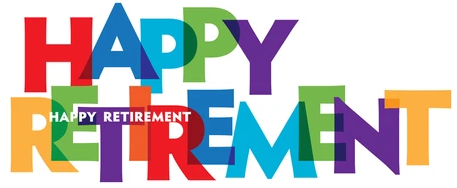Seizonas and Why Not #1
Picture the scene: all of your friends, family, and students (current and past) have gathered together to celebrate your career. As a part of the gathering, you listen to heartfelt tributes about how much you've meant to them.
As a part of the gathering, you listen to heartfelt tributes about how much you've meant to them.
They speak of seminal moments, formative experiences, and memorable performances. The evening is filled with laughter and tears as everyone remembers and celebrates the craziness of their musical experiences, and the impact it and you had on their lives.
Some use it as a chance to say the things they wish they'd said to you earlier. Some use it as a chance to remember and reflect. While others opine on how their lives have changed because of a chance encounter with you, their music teacher.
This probably sounds like a beautiful evening and a joy-filled retirement gathering - something you have already experienced or perhaps are looking forward to.
What if there was one crucial difference? What if the person on the receiving end of this outpouring of love were not actually retiring? What if we created the event on an arbitrary date to pause, reflect, and celebrate the person(s), places, and events that shape our lives?
Celebrating a well-lived life is nothing new and happens with regularity at the end of a career or life. Why do we wait until something is over to celebrate it? Why don't we create milestones designed to have us take measure of our pursuits and celebrate with the ones we love? In short, why do we wait until the end of a career to celebrate it? Why not do it sooner?
It turns out some people don't.
According to a recent article in The Guardian, living funerals (also known as pre-funerals), are becoming more commonplace as they "offer a chance for people to say goodbye to their friends and families on their own terms and to celebrate their life while they are still alive."
Living funerals, also called seizenso, are not entirely new concepts and gained traction in Japan in the 1990s. The idea is that it takes the pressure off family members and friends to organize a funeral after someone has died. In 2019, 25,000 people took part in a living funeral.
Initially designed for the terminally ill so they could hear what would be said at their funeral, the idea of a living funeral is being more broadly embraced to help those of us living to face our mortality and truly embrace being alive.
I spent fifteen years in a classroom at three different high schools. Each experience was as unique and special as the students I taught. I loved all three experiences for very different reasons.
My first job was in East Los Angeles. I left after 14 months because I was homesick and lonely. Also, my dream job opened back home, where I would spend the next decade as the band director and eventually as a building administrator on the same campus. My final four-year stint in the classroom ended with a leave of absence to start my leadership business. I left my first position mid-summer, my second position to move 100 yards away, and my third position with the belief I would one day return.
These three very different experiences had one shared trait - they ended quietly, without fanfare, and no opportunity to say goodbye.
I didn't get a chance to tell my students how much they meant to me, and for me to hear what I might have meant to them. This was not the plan or by design; I was a victim of circumstance.
I missed the opportunity to celebrate, commiserate, and bring some closure. A seizenso is something I needed and wanted but didn't know about at the time. And I regret it.
Teaching is hard. Teaching music is really hard. Teaching music in a politicized post-pandemic world? Well, I have no words. You need something to keep you going. You need to know that your efforts make a difference and have an impact. And you don't have to wait thirty-plus years to know it.
Our lives and careers are filled with milestones: contests, concerts, new students, new year, graduation, etc. Each presents an opportunity for a (mini) seizenso - a time to pause, reflect, and celebrate. It can be at a banquet, after-concert gathering, end-of-the-quarter exam, or a post-contest reflection. Just take the time to have the students write or speak about their journey and the impact music (and you) have had on their lives.
You deserve the time and opportunity to celebrate others and to have others celebrate you. You deserve the space and grace to share and receive love from others. You deserve to laugh, cry, and remember why we do this crazy profession, and you shouldn't have to wait thirty years to do it.
Learn from my mistakes, host your own seizenso, and feel love and appreciation
Why not?
Have a great week, everyone.
Scott
